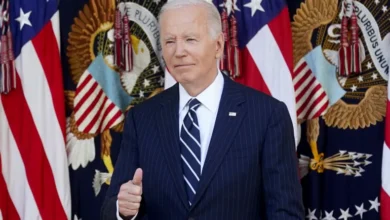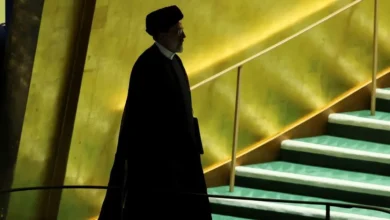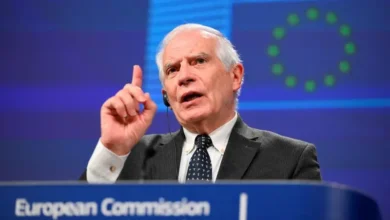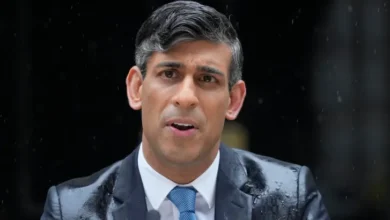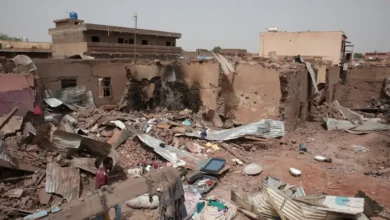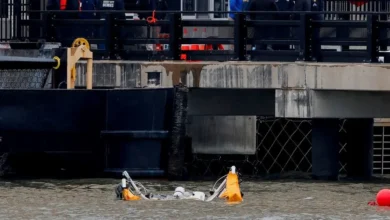Why did South Africa’s ruling ANC suspend ex-President Jacob Zuma?
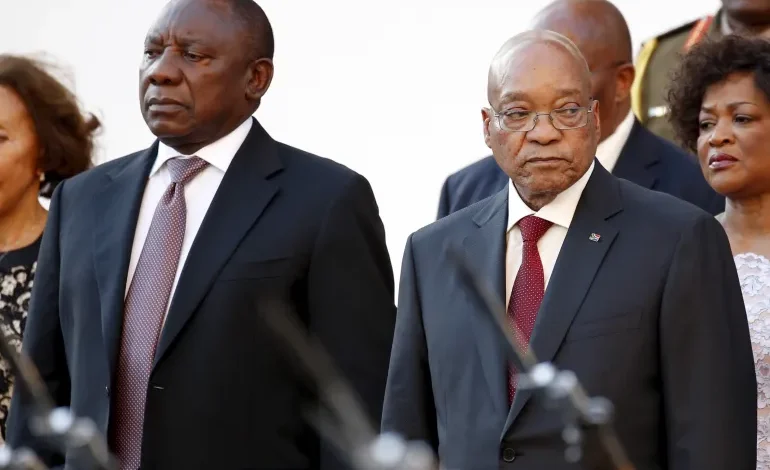
In a widely expected move, South Africa’s governing African National Congress (ANC) party suspended former President Jacob Zuma on Monday, just months ahead of the presidential election.
In a statement on X, the ANC accused Zuma of insubordination and said his suspension was justified because of “exceptional circumstances”.
The move follows months of turbulence between Zuma and current President Cyril Ramaphosa that has blighted the image of the party that has governed South Africa since the end of white minority rule three decades ago.
Zuma, who still remains widely popular, poses a threat to the party, which has been struggling to command the popular support it once had.
Here’s what we know about Zuma’s suspension, and why he fell out with the ANC:
Why did the party suspend Zuma?
In a statement following a meeting of the party’s National Executive Committee (NEC), ANC general secretary Fikile Mbalula said the party suspended Zuma primarily because he had backed another political party without formally exiting the ANC.
In December, Zuma had denounced the ANC leadership and said he would vote for the newly formed party uMkhonto Wesizwe (MK) or Spear of the Nation, named after the defunct military wing of the ANC that resisted apartheid rule but was disbanded following South African independence. Zuma later said he would hold on to his ANC membership.
That appeared to rankle the ANC, which has seen less support in these elections because of high unemployment and poverty rates in one of the world’s most economically unequal countries.
Zuma is “actively impugning the integrity of the ANC and campaigning to dislodge the ANC from power, while claiming that he has not terminated his membership”, the ANC statement said. “Zuma and others whose conduct is in conflict with our values and principles, will find themselves outside the ANC.”
The ANC leadership also plans to shut down the MK party by submitting complaints to an electoral court and by having the name trademarked.
How did Zuma’s troubles start?
Zuma is a controversial figure in South African politics. His suspension is only the latest in a series of clashes between him and President Ramaphosa, who is also the ANC leader. Here is a timeline:
February 14, 2018: Zuma is forced by the ANC to step down after ruling as president since 2009 following allegations of widespread corruption in his administration: allowing a wealthy family to influence government contracts and bribery in a multibillion-dollar deal with French arms manufacturer Thales. Ramaphosa took over as president, promising to clean up, effectively starting a feud.
June 29, 2021: Zuma is sentenced to 15 months in prison after he refuses to present himself in court during an ongoing corruption inquiry. Zuma calls the trial politically motivated.
July 8, 2021: Violent riots rock South Africa as Zuma begins his prison term. His supporters attack dozens of buildings, including stores and public infrastructure. More than 300 people die in the unrest, eventually leading to Zuma’s release in September on medical parole.
December 15, 2022: Zuma sues Ramaphosa, accusing the president of releasing classified documents about him to the media. The move is widely seen as part of a campaign by Zuma to remove the prosecutor, Billy Downer, who handled the ex-president’s corruption charges related to the arms deal.
December 16, 2023: Zuma denounces the ANC and offers his support for the MK in Soweto, leading to speculations he helped found the party. His announcement comes on the anniversary of the armed wing of MK, founded by former President Nelson Mandela in 1961.
January 29, 2024: ANC suspends Zuma.
